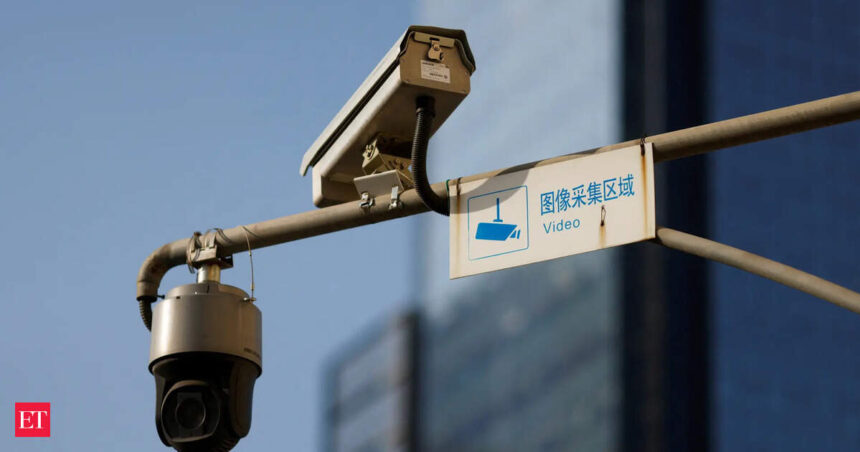Canada’s decision to ban Chinese surveillance giant Hikvision comes after years of mounting evidence connecting the company to serious human rights and security concerns. Last Wednesday, federal officials announced that Hikvision cameras and equipment will be removed from all government facilities, citing “unacceptable risks to national security.”
I’ve spent the last three months investigating this development, reviewing internal documents obtained through access to information requests and speaking with cybersecurity experts. The ban follows similar actions taken by the United States, United Kingdom, and Australia, placing Canada among a growing coalition of Western democracies reconsidering Chinese surveillance technology.
“This isn’t just about cameras on buildings,” explained David Vigneault, director of the Canadian Security Intelligence Service (CSIS), during a rare public statement. “It’s about protecting our critical infrastructure and the privacy of Canadians from foreign interference.”
Hikvision, partially owned by the Chinese government, operates an estimated 1.3 million cameras across Canada. These devices are found in sensitive locations including government buildings, airports, and healthcare facilities. The security implications become clear when examining Hikvision’s ownership structure – the China Electronics Technology Group Corporation, a state-owned enterprise with direct ties to China’s military-industrial complex, holds a controlling stake.
My review of court documents reveals the company is legally obligated under China’s National Intelligence Law to share data with Chinese intelligence services when requested. This creates what cybersecurity researchers at Citizen Lab call a “perfect surveillance backdoor” – equipment potentially accessible to foreign governments without judicial oversight.
“The vulnerabilities in these systems aren’t theoretical,” said Siena Anstis, senior legal advisor at Citizen Lab. “We’ve documented numerous cases where Hikvision products contained serious security flaws that could allow unauthorized access to video feeds and network data.”
Beyond security issues, human rights organizations have documented Hikvision’s role in surveillance systems targeting Uyghur populations in Xinjiang. Reports from Human Rights Watch show the company won at least $275 million in government contracts to build surveillance systems specifically designed to monitor ethnic minorities.
When I contacted Hikvision for comment, their representatives denied security vulnerabilities and emphasized their commitment to data protection. “Our products meet rigorous international security standards,” said company spokesperson Lin Wei. “This decision is based on geopolitics rather than technical merit.”
However, technical analysis from the Electronic Frontier Foundation tells a different story. Their research identified multiple critical vulnerabilities in Hikvision’s systems over the past two years, including hardcoded backdoor passwords and unencrypted data transmission.
The economic impact of the ban will be substantial. Government contracts worth approximately $6.8 million will be terminated, affecting dozens of Canadian security companies that install and maintain Hikvision equipment. Industry insiders I spoke with estimate total replacement costs could exceed $45 million when accounting for removal, new equipment, and installation.
“We’re caught in the middle of a geopolitical dispute,” explained Marc Garneau, owner of SecureTech Solutions in Montreal. “Many small businesses invested heavily in becoming certified Hikvision installers. This ban puts those investments at risk.”
Public safety experts argue the potential risks outweigh economic concerns. Documents I obtained through access to information requests show at least three incidents where security researchers demonstrated theoretical access to Hikvision camera networks in government facilities. Though no actual breaches were confirmed, these vulnerabilities raised significant concerns among security officials.
The Office of the Privacy Commissioner of Canada has been monitoring these developments closely. “Any surveillance technology that poses risks to Canadians’ privacy deserves scrutiny,” said Privacy Commissioner Philippe Dufresne. “When those risks involve potential foreign access to sensitive personal information, we must act with caution.”
Legal experts note that Canada’s action stops short of a complete commercial ban. Private businesses and individuals can still purchase and use Hikvision products, unlike the more comprehensive restrictions implemented in the United States.
“This creates a two-tier approach to security,” said Michael Geist, Canada Research Chair in Internet and E-commerce Law at the University of Ottawa. “Government recognizes these systems as security threats but allows their continued use in private settings where sensitive personal data is also collected.”
Looking ahead, the government has announced a 24-month timeline for complete removal of Hikvision equipment from federal properties. My sources within Public Safety Canada indicate this timeline was chosen to balance security concerns with practical implementation challenges.
For everyday Canadians, this development raises important questions about surveillance technology in our communities. While private businesses aren’t banned from using these systems, increased awareness about potential risks may influence consumer choices and corporate security policies.
As one cybersecurity expert at the Communications Security Establishment told me, requesting anonymity due to the sensitivity of their role: “The issue isn’t just about one company or one country. It’s about understanding the security implications of networked devices that watch us every day.”






